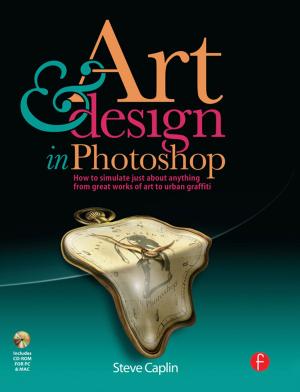Knowledge and Virtue in Teaching and Learning
The Primacy of Dispositions
Nonfiction, Reference & Language, Education & Teaching, Educational Theory, Aims & Objectives, Philosophy & Social Aspects| Author: | Hugh Sockett | ISBN: | 9781136580918 |
| Publisher: | Taylor and Francis | Publication: | March 29, 2012 |
| Imprint: | Routledge | Language: | English |
| Author: | Hugh Sockett |
| ISBN: | 9781136580918 |
| Publisher: | Taylor and Francis |
| Publication: | March 29, 2012 |
| Imprint: | Routledge |
| Language: | English |
The challenge this book addresses is to demonstrate how, in teaching content knowledge, the development of intellectual and moral dispositions as virtues is not merely a good idea, or peripheral to that content, but deeply embedded in the logic of searching for knowledge and truth.
It offers a powerful example of how philosophy of education can be brought to bear on real problems of educational research and practice – pointing the reader to re-envision what it means to educate children (and how we might prepare teachers to take on such a role) by developing the person, instead of simply knowledge and skills. Connected intimately to the practice of teaching and teacher education, the book sets forth an alternative theory of education where the developing person is at the center of education set in a moral space and a political order. To this end, a framework of public and personal knowledge forms the content, to which personal dispositions are integral, not peripheral.
The book’s pedagogy is invitational, welcoming its readers as companions in inquiry and thought about the moral aspects of what we teach as knowledge.
The challenge this book addresses is to demonstrate how, in teaching content knowledge, the development of intellectual and moral dispositions as virtues is not merely a good idea, or peripheral to that content, but deeply embedded in the logic of searching for knowledge and truth.
It offers a powerful example of how philosophy of education can be brought to bear on real problems of educational research and practice – pointing the reader to re-envision what it means to educate children (and how we might prepare teachers to take on such a role) by developing the person, instead of simply knowledge and skills. Connected intimately to the practice of teaching and teacher education, the book sets forth an alternative theory of education where the developing person is at the center of education set in a moral space and a political order. To this end, a framework of public and personal knowledge forms the content, to which personal dispositions are integral, not peripheral.
The book’s pedagogy is invitational, welcoming its readers as companions in inquiry and thought about the moral aspects of what we teach as knowledge.















